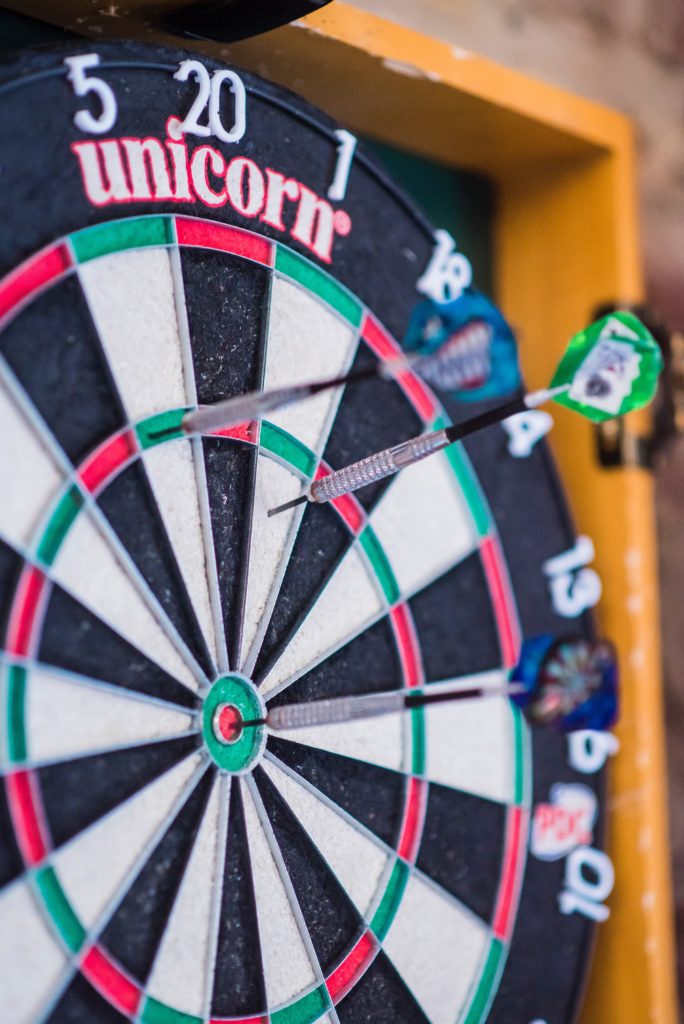
Some types of suffering are unavoidable in life: Physical pain or illness, rejection, loss of loved ones. But often times the suffering we experience comes from our reactions to situations, adding a second round of suffering. There is a Buddhist teaching that discusses the pain of two darts. The first dart is the unavoidable physical or emotional pain that we feel at certain points in our life. The second dart, the one that is avoidable, comes from the mental reaction to that pain which adds to our suffering.
In his book, “Buddha’s Brain” Rick Hanson describes this concept of the first and second darts, and the physiological processes that accompany them.
“First darts are unpleasant to be sure. But then we add our reactions to them. These reactions are ‘second darts’—the ones we throw ourselves. Most of our suffering comes from second darts” (Hanson, pg. 50).
What Dr. Hanson is describing is something that happens throughout our day, often without us noticing. Someone might not say hi to us in the hallway, and suddenly we are imagining all of the possible ways we could have upset them. “Maybe I said something in the meeting that upset them, or maybe they are mad at me for not including them at last week’s party?” These reactions or ruminations are completely fabricated and usually are not helpful for navigating the present moment.
This kind of internal disquiet is very common in the world of music, especially when considering the unavoidability of occasional mistakes. To make great music you have to take risks, and along with those risks can come mistakes. We have all felt that sinking feeling immediately following a mistake: an instinctual physical reaction that is generated from the disappointment of not playing or singing something in the way that we had intended. The second dart comes in from the mental reactions to that brief second. From that one mistake, completely fabricated outcomes begin to creep into our imagination, such as “This group is never going to hire me again,” or “Great, now everyone here knows I am a fraud—They think I’m completely worthless,” or “I am never going to make it as a musician.”
If you take a step back and look at these ruminations, you can see how blown out of proportion they are, but in the moment it is more difficult to notice. This kind of thinking can become so prevalent that sometimes even the first dart can be fabricated without our realizing it.
When you are living the life of a freelance musician, there are times when someone else will get a call for a job that you where hoping to get. This is part of life for all musicians in some way or another. Usually, the person in charge of hiring had no ill intent when they chose another musician over you, but a common reaction is to follow another mental path. We instead fabricate a scenario where we are the victim of an attack, that the personnel manager has something against us, or that they don’t think that we can hack it.
Reactions like these are not helpful. It can be difficult to catch the second dart before it hits home, but a good first step is to simply notice when you have created an unhelpful reaction to a situation. You will start to see how much of an impact our mental reactions to things can have on us and those around us. Be kind and patient with yourself, and trust that by starting to notice these reactions you are working toward preventing them all together.
Works Cited
Hanson, Rick. Buddha’s Brain: the practical neuroscience of happiness, love & wisdom. Oakland, CA: New Harbinger Publications, 2009.
